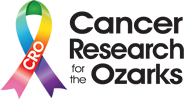Alliance A022101
This phase III trial compares total ablative therapy and usual systemic therapy to usual systemic therapy alone in treating patients with colorectal cancer that has spread to up to 4 body sites (limited metastatic). The usual approach for patients who are not participating in a study is treatment with intravenous (IV) (through a vein) and/or oral medications (systemic therapy) to help stop the cancer sites from getting larger and the spread of the cancer to additional body sites. Ablative means that the intention of the local treatment is to eliminate the cancer at that metastatic site. The ablative local therapy will consist of very focused, intensive radiotherapy called stereotactic ablative radiotherapy (SABR) with or without surgical resection and/or microwave ablation, which is a procedure where a needle is temporarily inserted in the tumor and heat is used to destroy the cancer cells. SABR, surgical resection, and microwave ablation have been tested for safety, but it is not scientifically proven that the addition of these treatments are beneficial for your stage of cancer. The addition of ablative local therapy to all known metastatic sites to the usual approach of systemic therapy could shrink or remove the tumor(s) or prevent the tumor(s) from returning.
Alliance A022104
This phase II trial compares the effect of irinotecan versus oxaliplatin after long-course chemoradiation in patients with stage II-III rectal cancer. Combination chemotherapy drugs, such as FOLFIRINOX (fluorouracil, irinotecan, leucovorin, and oxaliplatin), FOLFOX (leucovorin, fluorouracil, oxaliplatin, and irinotecan ), and CAPOX (capecitabin and oxaliplatin) work in different ways to stop the growth of tumor cells, either by killing the cells, by stopping them from dividing, or by stopping them from spreading. FOLFOX or CAPOX are used after chemoradiation as usual treatment for rectal cancer. Giving FOLFIRINOX after chemoradiation may increase the response rate and lead to higher rates of clinical complete response (with a chance of avoiding surgery) compared to FOLFOX or CAPOX after chemoradiation in patients with locally advanced rectal cancer.
CCTG-CO32
This study is being done to answer the following questions: Is the chance of rectal cancer responding the same if chemotherapy alone is given before limited surgery compared to chemotherapy and radiation therapy given together before limited surgery? If radiation therapy is not given, is quality of life better?
NRG-BN013
This phase III trial compares the effectiveness of fractionated stereotactic radiosurgery (FSRS) to usual care stereotactic radiosurgery (SRS) in treating patients with cancer that has spread from where it first started to the brain. Radiation therapy uses high energy x-rays to kill tumor cells and shrink tumors. FSRS delivers a high dose of radiation to the tumor over 3 treatments. SRS is a type of external radiation therapy that uses special equipment to position the patient and precisely give a single large dose of radiation to a tumor. FSRS may be more effective compared to SRS in treating patients with cancer that has spread to the brain.
NRG-GI004 – Temporary Closed
This randomized phase III trial studies how well combination chemotherapy, bevacizumab, and / or atezolizumab work in treating patients with deficient deoxyribonucleic acid (DNA) mismatch repair colorectal cancer that has spread to other places in the body. Drugs used in chemotherapy, such as fluorouracil, oxaliplatin, and leucovorin calcium, work in different ways to stop the growth of tumor cells, either by killing the cells, by stopping them from dividing, or by stopping them from spreading. Immunotherapy with monoclonal antibodies, such as bevacizumab and atezolizumab, may help the body's immune system attack the cancer, and may interfere with the ability of tumor cells to grow and spread. Giving combination chemotherapy, bevacizumab, and atezolizumab may work better in treating patients with colorectal cancer.
NRG-GI008
This Phase II/III trial will evaluate the what kind of chemotherapy to recommend to patients based on the presence or absences of circulating tumor DNA (ctDNA) after surgery for colon cancer.
Wake Forest WF-1806
This trial studies if myopenia (low muscle mass) plays a role in experiencing side effects from chemotherapy in older patients with colorectal cancer that has spread to other areas of the body (metastatic). Chemotherapy treatments for colorectal cancer can cause side effects such as low blood counts, nausea and vomiting, or mouth sores. Researchers are trying to determine if muscle mass has a role in how bad side effects from chemotherapy can be.
